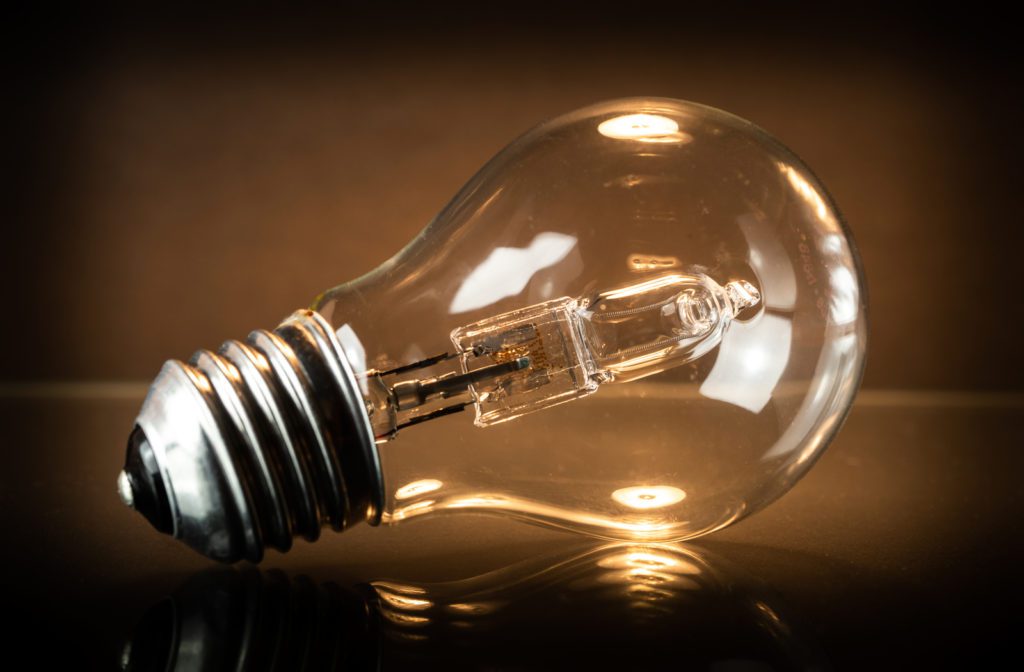Flickering lights are a common phenomenon in many homes and commercial buildings, but not a particularly welcome one. Many people find flickering lights distracting and off-putting—some even wonder if they can be dangerous.
Don’t worry; we’re going to show you some common reasons why electric lights flicker (and no, none of them involve ghosts). Read on to find out why lights flicker and what you can do to prevent or stop this from happening on your property.
Are Flickering Lights Dangerous?
Many cases of flickering lights result from simple, easy-to-solve errors and do not pose imminent risks to the safety of your home. However, lights can sometimes flicker due to more serious electrical problems that require timely professional intervention to prevent a potential emergency.
So the short answer is: if your lights are flickering, find out why. The reason behind the problem will determine what kind of action you need to take, and how quickly.
5 Reasons Your Lights Might Be Flickering
1. Loose Light Bulbs
If the flickering in your building seems limited to a single bulb, it may only need to be tightened a little. Just make sure you turn the power off first and wait until the bulb is cool before you touch it, or you might end up burning yourself. Incandescent bulbs produce significantly more heat during use than LED lights, so you’ll need to wait longer to replace these bulbs if they’ve been on for a long time.
2. Flickering Fluorescents
Some light bulb types (such as fluorescents) are naturally prone to flickering a little right after you turn them on. Fluorescent light bulbs may also flicker in cold environments, so if it’s the middle of winter and your heater hasn’t been running, the occasional flicker shouldn’t surprise you.
Both fluorescents and LED light bulbs can flicker if you use them with dimmer switches designed to work with halogens or incandescents. This isn’t dangerous, but you’ll have to replace the switches with dimmers designed for the right bulb type if you want to reduce the flickering.
3. Overloaded Circuits
When are your lights flickering? Is it happening randomly, or does it occur immediately after you start an appliance? Large appliances like vacuums can sometimes overload electrical circuits by drawing too much power, and lights on those circuits may flicker as a result.
Circuits that are overloaded this way are generally more annoying than dangerous. You may find your circuit breaker tripping often if you’re consistently drawing too much power. Replacing or upgrading the circuit with one that can handle the load will solve this problem (or you might consider moving some of your appliances to a different circuit).
4. Loose Wiring
Unlike a loose light bulb, loose wires actually can be a safety hazard. Loose wires can overheat, and are also prone to arcing—a phenomenon where an electrical current jumps between contact points. Both overheating and arcing are common causes of electrical fires, so if your lights are flickering and you can’t trace the problem to one of the earlier items on this list, schedule an electrical inspection of your home to check for poorly wired areas.
5. Voltage Changes
If your lights still flicker after turning off large appliances on the same circuit, or if your light bulbs are burning out at a higher-than-normal rate, the voltage in your home may simply be fluctuating outside the acceptable range of 115-125 volts. Calling a professional electrician to assess the voltage levels in your home is the most reliable way to find out if this is happening and solve the problem.
Find Out Why Your Lights Are Flickering
Lights can flicker for other reasons as well, but the scenarios described above are some of the most common causes. If you are experiencing an electrical problem you can’t explain or solve by yourself, make sure to contact a licensed professional electrician who you can trust to solve the issue for you.


